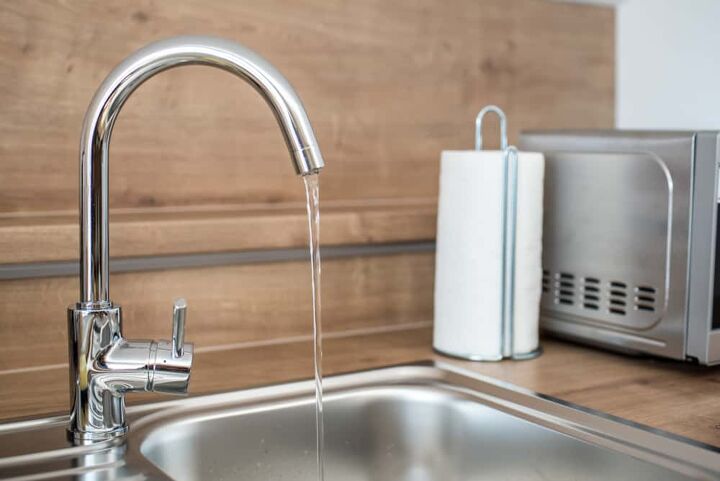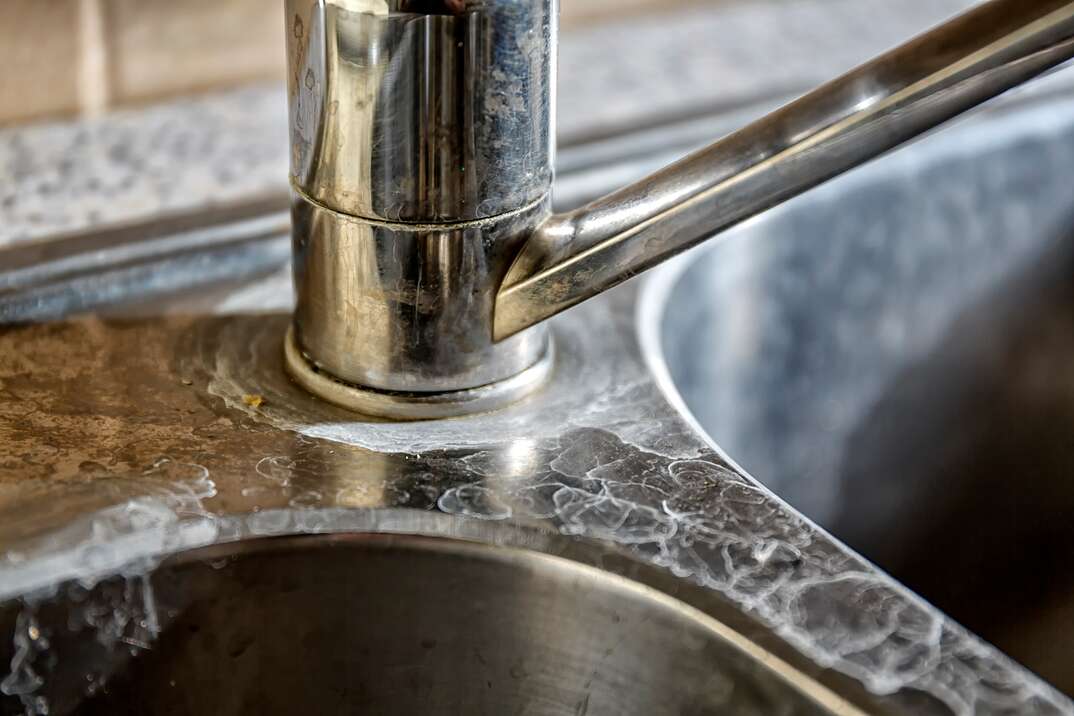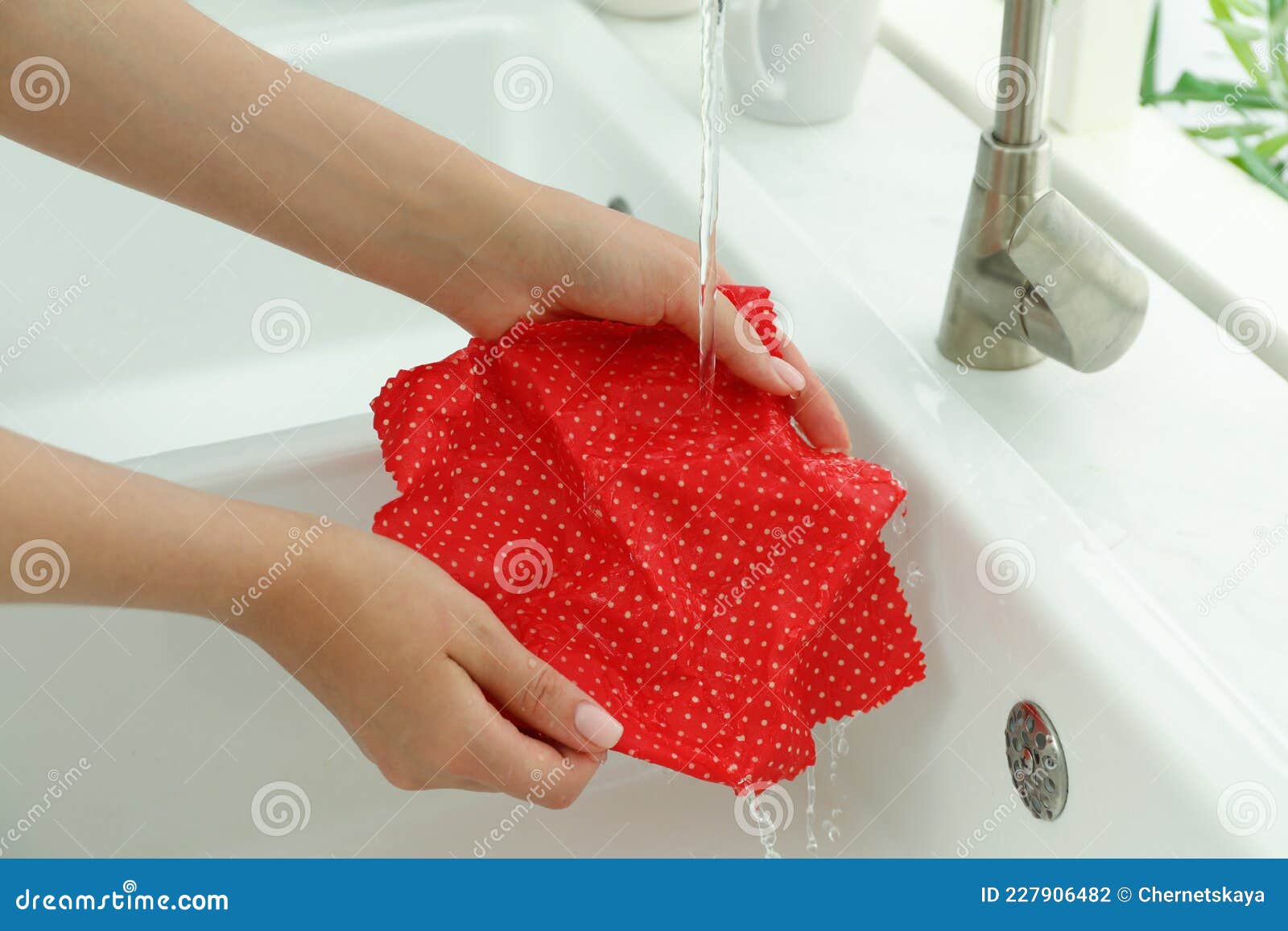If you've noticed that the water coming out of your kitchen sink is turning black or grey, you're not alone. This is a common problem that many homeowners face, and it can be caused by a variety of factors. One of the main reasons for black or grey water in your kitchen sink is the buildup of food particles and grease. Over time, these substances can accumulate in your pipes and cause a blockage, resulting in the discolored water. Another common cause is the presence of iron and manganese in your water supply. These minerals can give your water a dark or grey tinge, and they can also stain your sink and dishes. Finally, if you have old or corroded pipes, they may be leaching rust into your water, giving it a black or grey color.1. Causes of Black or Grey Water in Kitchen Sink
The good news is that there are several ways to fix the problem of black or grey water in your kitchen sink. If the issue is due to food particles and grease buildup, you can try using a plunger or a drain snake to clear the clog. You can also try pouring a mixture of hot water and baking soda down the drain to break up the buildup. To remove iron and manganese from your water supply, you may need to install a water filtration system. This will help to remove these minerals and improve the quality of your water. If your pipes are the issue, it's best to call a plumber to replace them. This will not only fix the problem of discolored water, but it will also prevent future issues with your plumbing system.2. How to Fix Black or Grey Water in Kitchen Sink
While black or grey water in your kitchen sink may not necessarily be harmful on its own, it can be a sign of other issues that could pose health risks. For example, if the water is discolored due to a buildup of food particles, it could be a breeding ground for bacteria and other pathogens. This can lead to foul odors and potential health hazards if ingested. Additionally, if your water is tainted with iron, manganese, or rust, it may have a metallic taste and odor, which can be unpleasant and make it less appealing to drink or cook with. It's important to address the issue of black or grey water in your kitchen sink to ensure the safety and quality of your water supply.3. Health Risks of Black or Grey Water in Kitchen Sink
If you're dealing with black or grey water in your kitchen sink, there are a few DIY solutions you can try before calling in a professional. As mentioned earlier, using a plunger or a drain snake can help to clear any clogs caused by food particles and grease. You can also try pouring a mixture of hot water and vinegar down the drain to break up the buildup. If the issue is due to iron or manganese, you can try using a water softener or a specialized filter designed to remove these minerals. These can be easily installed on your faucet or under your sink. However, if your DIY efforts are unsuccessful or the issue persists, it's best to seek the help of a professional plumber or water treatment specialist.4. DIY Solutions for Black or Grey Water in Kitchen Sink
As mentioned earlier, the most common reasons for black or grey water in your kitchen sink are buildup of food particles and grease, presence of iron and manganese, and corroded pipes. However, other factors can also contribute to this issue. For example, if your home has old plumbing or a septic system, it can affect the quality and color of your water. It's also possible that your water supply may be contaminated by outside sources, such as construction or agricultural runoff. To determine the exact cause of your black or grey water, it's best to consult a professional who can assess your specific situation and provide a tailored solution.5. Common Reasons for Black or Grey Water in Kitchen Sink
If your DIY efforts have not been successful in resolving the issue of black or grey water in your kitchen sink, it's time to call in the professionals. A plumber can help to identify the cause of the problem and provide solutions such as pipe replacement or cleaning. They can also address any other issues with your plumbing system that may be contributing to the discolored water. Water treatment specialists can also be consulted to test your water supply and provide solutions such as filtration systems to remove any contaminants.6. Professional Services for Black or Grey Water in Kitchen Sink
Prevention is always better than a cure, and this applies to the issue of black or grey water in your kitchen sink as well. To prevent buildup of food particles and grease, make sure to properly dispose of food scraps and avoid pouring cooking oil and grease down the drain. Regularly cleaning your sink and pipes with a mixture of hot water and vinegar can also help to prevent clogs and buildup. If you have iron or manganese in your water supply, consider investing in a water filtration system to remove these minerals and improve the quality of your water.7. Prevention Tips for Black or Grey Water in Kitchen Sink
Aside from causing discolored water, black or grey water can also have negative effects on your plumbing system. If left untreated, clogs and buildup in your pipes can eventually lead to blockages and backups, resulting in costly repairs and potential damage to your plumbing system. Additionally, if your water supply is contaminated with iron, manganese, or rust, it can cause corrosion and damage to your pipes over time, leading to leaks and other issues.8. Effects of Black or Grey Water on Plumbing System
The presence of black or grey water in your kitchen sink can also have an environmental impact. For example, if your water supply is contaminated with iron or manganese, it can affect the quality of the water in nearby streams and lakes, potentially harming aquatic life. In addition, clogs and backups caused by buildup in your pipes can also lead to sewage overflows, which can pollute the environment and pose health hazards.9. Environmental Impact of Black or Grey Water in Kitchen Sink
It's important to be aware of the signs of black or grey water in your kitchen sink so that you can take action before the problem gets worse. The most obvious sign is the discoloration of your water. However, you may also notice foul odors coming from your drain, slow draining water, or recurring clogs. If you notice any of these signs, it's best to address the issue as soon as possible to prevent further damage and potential health hazards. In conclusion, black or grey water in your kitchen sink can be caused by a variety of factors, and it's important to address the issue to ensure the safety and quality of your water supply. By following prevention tips and seeking professional help when needed, you can keep your kitchen sink water clear and healthy for everyday use.10. Signs of Black or Grey Water in Kitchen Sink
The Truth About Kitchen Sink Water

The Curious Case of Black or Grey Water
/water-overflowing-in-kitchen-sink-200553937-001-5797e6335f9b58461f5a6736.jpg) When it comes to designing our homes, the kitchen is often considered the heart of the house. It's where we gather with family and friends, cook delicious meals, and create lasting memories. However, one aspect of the kitchen that often goes unnoticed is the water that flows out of our sinks. Have you ever noticed that the water from your kitchen sink sometimes appears black or grey? If so, you're not alone. This phenomenon has puzzled homeowners for years, but the truth behind it may surprise you.
Kitchen sink water as black or grey
is a common occurrence in many households, and it can be caused by a number of factors. One of the main reasons for this discoloration is due to the presence of
minerals and sediment
in the water. These minerals, such as iron and manganese, can cause the water to appear dark or cloudy. Additionally, if your home has old or corroded pipes, it may contribute to the presence of these minerals in your water.
Another reason for
black or grey water
from the kitchen sink could be due to the build-up of
organic matter
. Over time, food particles, grease, and other debris can accumulate in your pipes, creating a layer of sludge. This sludge can not only cause discoloration in your water, but it can also lead to unpleasant odors and clogged drains.
But before you start panicking and calling a plumber, it's essential to note that
kitchen sink water as black or grey
is not always a cause for concern. In fact, in some cases, it may be completely harmless. For instance, if you have recently installed a new faucet, the black or grey water could be due to
air bubbles
trapped in the pipes. Simply run the water for a few minutes, and the bubbles should dissipate, revealing clear water.
If you're still concerned about the quality of your kitchen sink water, there are a few steps you can take to improve it. First, try installing a
water filtration system
to remove any impurities from your water. Regularly cleaning your sink and
drain pipes
can also help prevent build-up and keep your water clear. And if you have old pipes, it may be worth considering replacing them to avoid any potential issues.
In conclusion, while
kitchen sink water as black or grey
may seem alarming at first, it's essential to understand the various factors that can contribute to it. By taking preventative measures and being aware of any potential issues, you can ensure that the water in your kitchen sink remains clean and safe for you and your family to use. So next time you notice black or grey water coming out of your kitchen sink, don't panic – instead, take the necessary steps to maintain the heart of your home.
When it comes to designing our homes, the kitchen is often considered the heart of the house. It's where we gather with family and friends, cook delicious meals, and create lasting memories. However, one aspect of the kitchen that often goes unnoticed is the water that flows out of our sinks. Have you ever noticed that the water from your kitchen sink sometimes appears black or grey? If so, you're not alone. This phenomenon has puzzled homeowners for years, but the truth behind it may surprise you.
Kitchen sink water as black or grey
is a common occurrence in many households, and it can be caused by a number of factors. One of the main reasons for this discoloration is due to the presence of
minerals and sediment
in the water. These minerals, such as iron and manganese, can cause the water to appear dark or cloudy. Additionally, if your home has old or corroded pipes, it may contribute to the presence of these minerals in your water.
Another reason for
black or grey water
from the kitchen sink could be due to the build-up of
organic matter
. Over time, food particles, grease, and other debris can accumulate in your pipes, creating a layer of sludge. This sludge can not only cause discoloration in your water, but it can also lead to unpleasant odors and clogged drains.
But before you start panicking and calling a plumber, it's essential to note that
kitchen sink water as black or grey
is not always a cause for concern. In fact, in some cases, it may be completely harmless. For instance, if you have recently installed a new faucet, the black or grey water could be due to
air bubbles
trapped in the pipes. Simply run the water for a few minutes, and the bubbles should dissipate, revealing clear water.
If you're still concerned about the quality of your kitchen sink water, there are a few steps you can take to improve it. First, try installing a
water filtration system
to remove any impurities from your water. Regularly cleaning your sink and
drain pipes
can also help prevent build-up and keep your water clear. And if you have old pipes, it may be worth considering replacing them to avoid any potential issues.
In conclusion, while
kitchen sink water as black or grey
may seem alarming at first, it's essential to understand the various factors that can contribute to it. By taking preventative measures and being aware of any potential issues, you can ensure that the water in your kitchen sink remains clean and safe for you and your family to use. So next time you notice black or grey water coming out of your kitchen sink, don't panic – instead, take the necessary steps to maintain the heart of your home.




































































